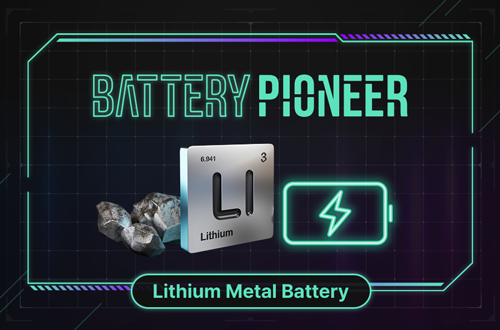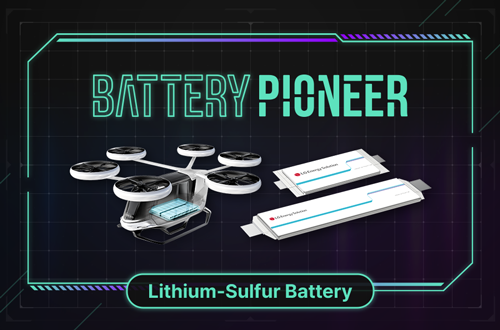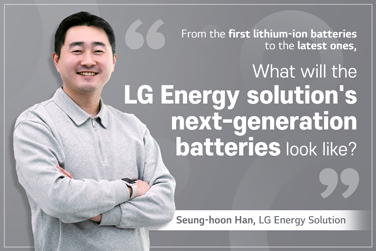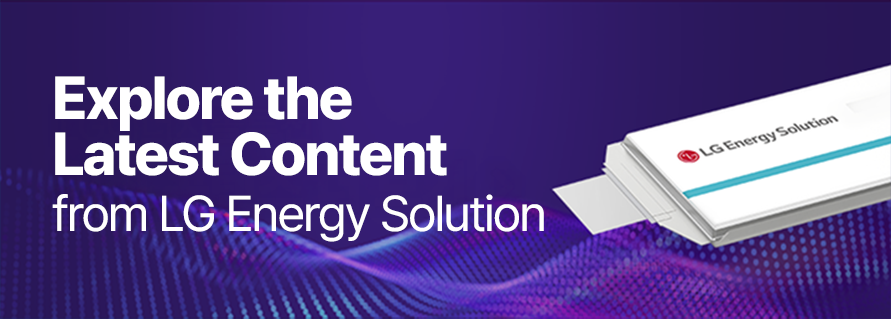Lithium metal batteries are attracting attention as next-generation batteries! In this issue of Questions about All Batteries in the World, we will look at the characteristics of lithium metal batteries and the results of LG Energy Solution’s research to strengthen its technological competitiveness.
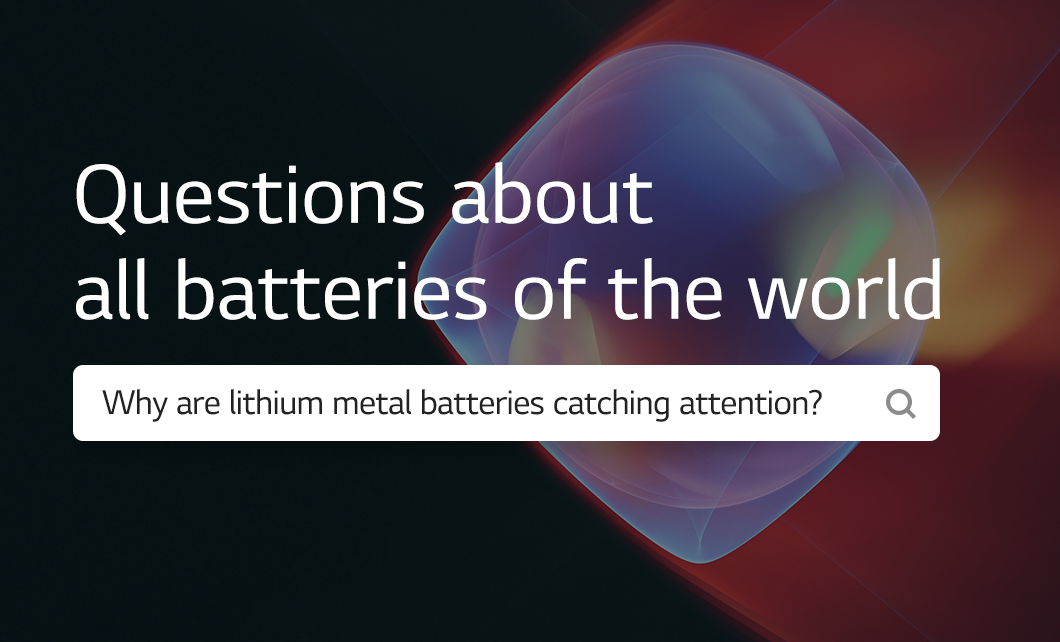
Q. What kind of battery is a lithium metal battery?
Lithium-ion batteries (LIBs) that are commercially used now are composed of four materials: cathode material, anode material, electrolyte, and separator, etc. Each material is made from various raw materials to play its role in the battery and to ensure the battery performance required by the market. Among them, graphite and silicon are mainly used as anode materials for lithium-ion batteries.
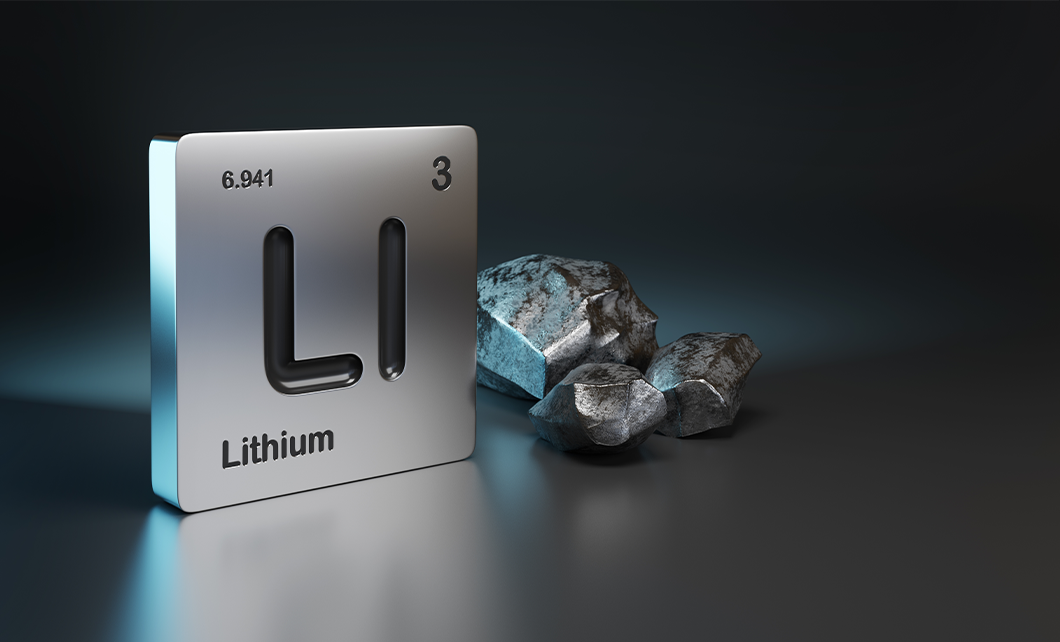
A lithium metal battery refers to a battery that uses “lithium metal” rather than graphite or silicon as the anodes. Lithium metal batteries are attracting attention as next-generation batteries along with all-solid-state batteries and lithium-sulfur batteries. This is because they have performance and advantages to replace lithium-ion batteries. To this end, the battery industry is constantly conducting research to commercialize lithium metal batteries.
Q. What are the characteristics of lithium metal batteries?
What are the characteristics of lithium metal batteries that make them considered to be the next-generation batteries? First, lithium metal batteries are evaluated to have about 10 times higher capacity than batteries using graphite as the anode material. This is because the lithium metal anode can store more lithium ions from the cathode material. This feature allows the volume and size to be greatly reduced, thereby greatly improving energy density.
In addition, lithium metal batteries can charge faster than lithium-ion batteries. In the case of lithium-ion batteries that use graphite as the anode material, energy is used as lithium ions are inserted into the graphite structure and released again. On the other hand, in lithium metal batteries, lithium ions moving to the anode material directly cause an oxidation-reduction (redox) reaction with lithium metal. This greater compatibility and responsiveness allows for faster charging speeds.
Lithium metal batteries that have these advantages appeared in the battery market before lithium-ion batteries did. Before the Japanese company Sony commercialized lithium-ion batteries in 1991, the Canadian company “Moli Energy” developed the secondary battery Molicel in 1988. At that time, the company commercialized the first lithium metal battery by applying molybdenum disulfide to the cathode of Molicel and lithium metal to the anode. Molicel was first used in mobile phones released by Japanese telecommunications company NTT.
So, even though lithium metal batteries have a history of being commercialized and have many advantages, why are they not as popular as lithium ion batteries?
This is because in order to commercialize safe lithium metal batteries, the limitation called “dendrite” must be resolved. Dendrite, which means “dendritic branching”, refers to the phenomenon where lithium crystals form on the surface of the anode and grow into sharp, branch-shaped crystals. If lithium crystals continue to accumulate, they would penetrate the separator, reaching the cathode material, which may cause an accident.
These dendrites cause corrosion by electrolytes, which also affects the lifespan of the battery. The solid electrolyte interphase (SEI) is a solid film that forms between the anode material and the electrolyte when the battery is first charged. It acts as a passage that helps only lithium ions move while protecting the electrolyte. Therefore, if the SEI is damaged, charging and discharging efficiency decreases.
*Battery Glossary – Go and check “Dendrite”
Q. What efforts is LG Energy Solution making to secure lithium metal battery technology?
As such, overcoming the limitations of lithium metal batteries will lead to many advantages, which is a reason why it is attracting attention as the next-generation battery. So what efforts is LG Energy Solution making to further enhance its lithium metal battery technology?
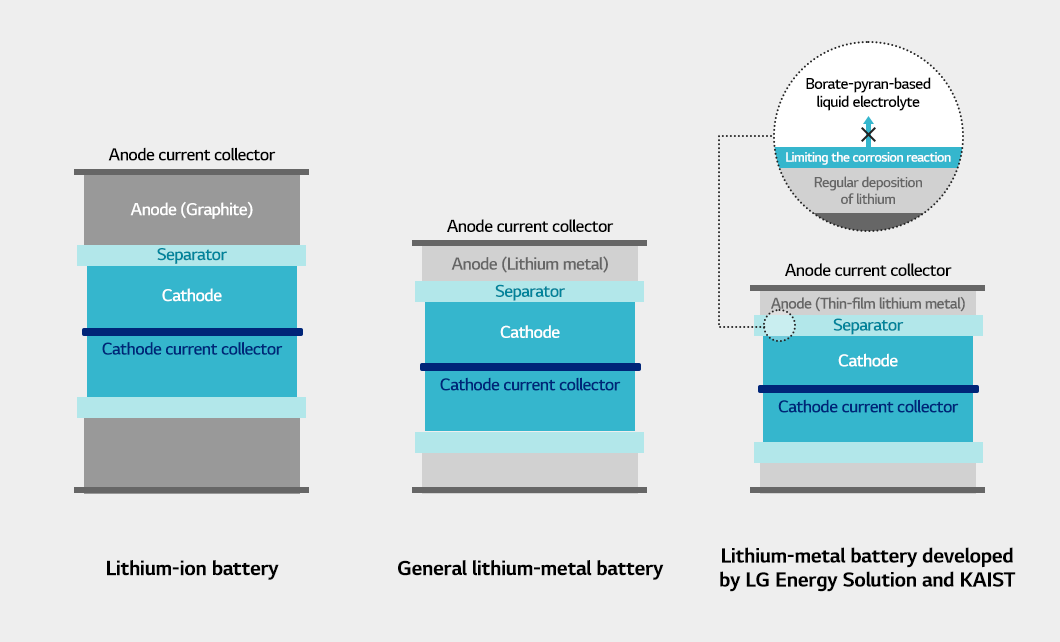
In 2021, LG Energy Solution and the Korea Advanced Institute of Science and Technology (KAIST) established a joint research center to conduct research and development of original technology related to lithium metal batteries. In December 2023, it succeeded in developing technology to increase the performance of lithium metal batteries, opening the opportunity for battery commercialization.
The joint research team of LG Energy Solution and KAIST applied a “borate-pyran-based liquid electrolyte” to lithium metal batteries for the first time in the world. This electrolyte reorganizes the SEI as a dense structure and serves to block the corrosion reaction between the electrolyte and the lithium metal anode. This enabled the research team to improve the charging and discharging efficiency of the lithium metal battery and increase the energy density enough to enable driving of 900 km on a single charge. This is a 50% improvement compared to the approximately 600 km range of lithium-ion batteries used in existing high-performance electric vehicles. In addition, the team has guaranteed lifespan stability to the extent that the battery can be recharged more than 400 times.
In addition, unlike all-solid-state batteries, the lithium metal battery developed by the joint research team does not require high temperature and pressure while in operation and has the advantage of enabling the design of a simplified battery system to increase the driving range of electric vehicles.
So far, we have looked at what kind of battery the lithium metal battery is and what efforts LG Energy Solution is making to advance the lithium metal battery technology. Let’s pay attention to whether lithium metal batteries can be a game changer that will dominate the battery industry!
